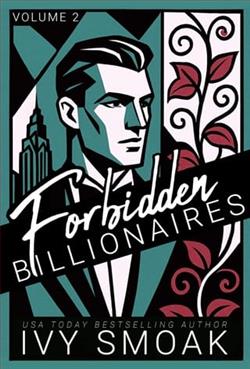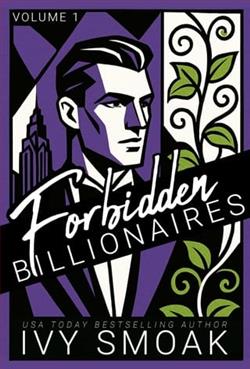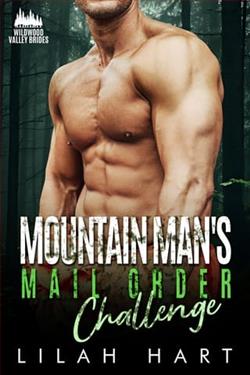Page 31 of So Far Gone
They climbed back in the pickup. “So, now what?” Kinnick asked.
Chuck was chewing his cheek and breathing heavily, as if stumped by a math problem. He looked over. “Can I ask you something, Rhys?”
“Sure,” Kinnick said.
Chuck pulled out his key ring, reached across Kinnick’s lap, and used a key to unlock the glove box. He pulled out a small black case, spun three numbers on the lock, and then removed a black handgun. “You ever use one of these?”
***
His first day in the woods, January 28, 2017, Kinnick carried two bundles of firewood into the house. He’d bought them at a grocery store on hisway out of town, along with what felt like a month’s worth of provisions. Inside the house, he balled up newspaper and stuffed it through the wrought iron door of the old woodstove, stacked a few pieces of kindling inside, and lit a match. The temperature, outside and in, was 12 degrees Fahrenheit. Kinnick had been preparing the place—sealing up windows, cleaning and bringing in furniture, lugging in books and pots and pans and clothes from the apartment he was giving up in Spokane. And now, with this first fire, he was officially moving in.
The fire caught, and Kinnick got the flue open, but some enterprising swifts had built a nest in the chimney, and the old sticks and brush started burning. Kinnick watched out the window as sparks rained down on the snowy fields surrounding the house. He was glad the roof was made of tin, or it surely would have caught fire. But soon the smoke was drawing nicely out the chimney, and the abandoned cinder block house began to heat up. Kinnick went outside, walked to the creek, broke through the ice, and filled two milk jugs of creek water to carry back. He poured them into a pan on the woodstove, boiled it, and was pleased to have drinking water. He planted a few perishable groceries in a snowbank outside—tied up in bags—and, when the sun set, he rolled a sleeping bag out on the floor, turned on a battery-powered lantern, and set to readingWalden: Life in the Woodsfor the second time since dreaming up this unlikely escape from the world:
When I wrote the following pages, or rather the bulk of them, I lived alone, in the woods, a mile from any neighbor, in a house which I had built myself, on the shore ofWalden Pond, in Concord, Massachusetts, and earned my living by the labor of my hands only.
That’s when Kinnick realized that he had company. He looked up. Claws were skittering somewhere upstairs. He climbed the narrowstaircase and shined a flashlight into the open attic bedroom and came face-to-face with a hard gang of dead-eyed raccoons that had apparently bunked down for the night. Shit. Nothing worse than raccoons. He’d cleaned some scat around the house, but he hadn’t realized the raccoons thought they lived here. Oh, well. He’d take care of it in the morning. But they scurried around all night, fighting, screwing, snarling, laughing. Then, just before dawn, Kinnick heard a noise outside and he went out to find his new roommates were already up and having breakfast, feasting on lunch meat, frozen potatoes, ground coffee—his groceries having been dug out of the snowbank and torn out of the bags from where he’d stupidly left them.
Kinnick clapped his hands. The masked assholes looked at him with sheer disinterest.Yeah. You got a problem?Kinnick ran at them, but they didn’t budge. He threw rocks, but they just kept munching. One raccoon with a gnawed ear didn’t even look up; he was too busy trying to open a jar of dill pickles. Finally, Kinnick returned with a shovel and swung it at the lead raccoon, who hissed and snarled, but slowly backed away, a package of sliced ham clenched in his greedy little fingers.
Kinnick swung the shovel again, this time connecting with the poor, one-eared raccoon holding the unbreachable pickle jar. The wounded creature left the pickles and slalomed away in a daze, the others quickly retreating with him. This battle with the raccoons had lasted about ten minutes, but when Kinnick surveyed the booty—food half-eaten, packages torn—he realized that his provisions were almost all ruined. They’d even sampled his coffee (though, presumably, they preferred a lighter roast). The pickles, some ketchup, a quart of orange juice—there wasn’t much to salvage. Well, at least he had the nonperishable food inside the—
Shit.
Kinnick rushed back in, and found three other raccoons, already in the kitchen, again eating without him, chomping on his bread, his granola, his trail mix, even the box of pink Hostess Snoballs he’d thrownin his grocery cart at the last minute—a guilty pleasure since he was a kid.
He sat down on the floor and watched his thoughtless roommates finish the meal. They kept their beady eyes on his, their almost-human little hands working over the pink sprinkles and cake. Two smaller raccoons hissed and fought over the last Snoball.
“Don’t worry,” Kinnick said. “I’ll buy more.”
He thought of his dad, Leonard, who’d proudly lived most of his adult life in Seattle—as a kind of rebuke to this very place. After leaving the navy, Leonard Kinnick had married Rhys’s mom and taken a job managing apartment buildings in the city and, later on, a golf course. Leonard had called his own father’s old house in the woods of Eastern Washington “the back door to hell.” Rhys kind of wished his dad could see his predicament now; Leonard had a riotous, peeling laugh, and his son’s ineptitude would no doubt bring a great guffaw. (“Reesy, what were you thinking?”) Leonard would have thought it was insane, moving into his old man’s cinder block house on the Hunters highway.Hisfather, Rhys’s grandpa Emrys, had moved the family up here from Oakland after losing his shipyard job after World War II. His wife and his two sons, Leonard and Pete, weren’t happy in the remote woods of Eastern Washington, where Emrys set out to build the kind of sheep ranch that had sustained generations of Kinnicks back in Scotland and Wales. Rhys’s father was only fifteen at the time, but he considered himself a city kid, unimpressed with backward Stevens County and with his father’s idea of being a twentieth-century Highlands shepherd.
Emrys’s wife didn’t care for it, either, and after two weeks, she left her moody husband and his erstwhile sheep ranch for a department store job in Tacoma, taking their younger son, Rhys’s Uncle Pete, with her. When Leonard joined them a month later, Rhys’s grandfather was almost relieved to not have to make the rustic old house habitable for his sulking wife and kids. He settled into the most basic existence possible,figuring he’d die on this land, not realizing that it would take another forty years.
Rhys could recall his dad taking him to visit craggy, old Grandpa Emrys, who always walked his little ranch in a sheepskin coat that he’d brought from the old country, even though he never got around to having actual sheep on his sheep ranch. Instead, he cut firewood and bucked hay bales and did odd jobs in town to make the ends barely meet. Rhys knew his dad hated visiting his own reclusive father here. “That place destroyed our family,” Leonard told him once. But, for some reason, when the old man died, Leonard couldn’t bring himself to sell the land. He rented out the house for a while, and sometimes let tenants live there for free. “It’s basically worthless,” he said.So, sell it, Rhys thought. And yet, when Leonard died, the land became Rhys’s. And, as it turned out, Rhys couldn’t bring himself to sell it, either.
And now look. He’d pulled a complete Grandpa Emrys—blown up his family, lost his job, and run off to the woods, seekingthe tonic of wildness. But the tonic of wildness had been greatly diluted in those seventy years. When Emrys moved into the woods, his closest neighbor was more than two miles away. Now, Kinnick had four or five neighbors within a mile of his house, and every year, there seemed to be more construction crews and logging trucks plying the two-lane highway, carving dirt roads and driveways into these remote foothills, digging wells, pouring foundations, endlessly converting forests and fields to family farmhouses. When he was a boy, Rhys could remember these woods being full of black bear and elk, moose, coyote, and Canadian lynx.
And now? Here he was, his first morning in the woods, and Kinnick’s wildness tonic consisted of a street gang of unruly raccoons working its way through his groceries in his cold kitchen. Watching them he wondered if this was the sort of profound epiphany that Thoreau’s writing had promised:
Live in each season as it passes; breathe the air, drink the drink, taste the fruit and resign yourself to the influence of the earth.
For how could one resign oneselfmoreto the influence of the earth than by watching a pack of belligerent raccoons snarf andchirblethe last of your supplies?
As he pondered this question, Kinnick had two related thoughts about his new home: 1. This was going to be more difficult than he’d imagined. And 2. Until he figured out how the raccoons were getting in his house, he probably needed to get a gun.
***
Kinnick stared at the gun in Chuck Littlefield’s hand. “Jesus. No!”
“You’ve never fired a gun?”
“Well, yes. I mean... I have a pellet gun at my place in the woods—”
“A pellet gun?”
“Yeah. A Dragonfly air-action rifle. For scaring raccoons.”
“An air gun? Forscaringraccoons? You didn’t shoot ’em?”















